According to Chef Sofia, it’s more than just a trendy drink—it’s a glass full of color, contrast, and comfort. The strawberry matcha latte is popping up in cafés around the world, and for good reason. It’s light, pretty, and surprisingly good for you.
In this guide, Chef Sofia walks you through the story behind the drink, its nutritional benefits, easy ways to make it at home, and creative twists you might not have tried. If you’re curious about what makes this fruit-flavored tea so irresistible—or how to prepare it without heading to your local café—this article is for you.
The Rise of Strawberry Matcha Latte: A Fusion of Flavor and Wellness
- Total Time: 10 minutes
- Yield: 1 latte 1x
Description
The Strawberry Matcha Latte is a vibrant, layered drink that beautifully fuses sweet strawberries with earthy matcha green tea. This Instagram-worthy beverage not only pleases the palate but also packs a punch of antioxidants and natural energy. Perfect for a mid-morning boost or an afternoon treat, it’s as nourishing as it is refreshing. Whether served iced or warm, this café-style latte is easy to recreate at home with just a few wholesome ingredients.
Ingredients
½ cup fresh or frozen strawberries
1 tbsp honey or maple syrup (optional, to taste)
½ cup milk of choice (dairy, almond, oat, etc.)
1 tsp matcha powder (ceremonial grade preferred)
¼ cup hot water (not boiling – about 175°F / 80°C)
Ice cubes (for iced version)
Instructions
Make the Strawberry Purée: In a small blender or food processor, blend the strawberries with honey or maple syrup until smooth. Optionally, strain for a smoother texture.
Prepare the Matcha: In a bowl, sift the matcha powder to remove clumps. Add hot water and whisk vigorously in a zigzag motion until frothy.
Assemble the Latte: In a clear glass, spoon the strawberry purée into the bottom. Add ice if making an iced latte.
Add Milk: Gently pour your milk of choice over the strawberry layer to create a beautiful contrast.
Top with Matcha: Slowly pour the whisked matcha over the milk to create the final, striking green layer.
Serve: Stir before drinking or leave layered for visual appeal. Enjoy immediately!
- Prep Time: 10 minutes
- Category: Beverage / Drink
- Cuisine: Fusion / Japanese-Inspired
Nutrition
- Serving Size: 1 latte
- Calories: 130
- Sugar: 17g
- Sodium: 50mg
- Fat: 3g
- Saturated Fat: 0.3g
- Unsaturated Fat: 2.5g
- Carbohydrates: 25g
- Fiber: 2g
- Protein: 2g
- Cholesterol: 0mg
Keywords: Strawberry Matcha Latte
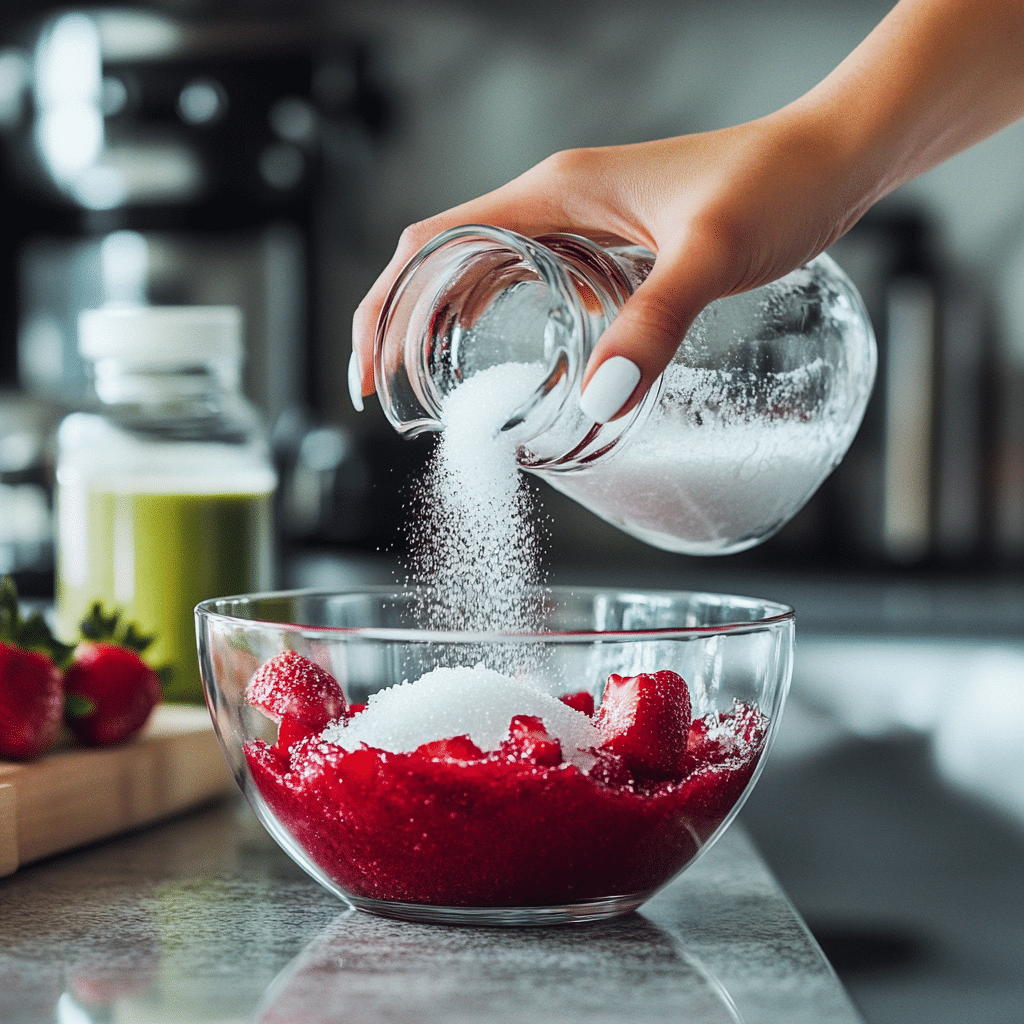
The Origins and Evolution of Strawberry Matcha Latte
The Roots of Matcha: From Ancient China to Modern Cafés
Matcha has a history as rich as its deep green color. Originally used in ancient China and later perfected by Japanese monks, this powdered green tea was prized for its calm energy and meditative focus. Over time, it became part of Japanese tea ceremonies, symbolizing mindfulness and hospitality.
Fast forward to today, and matcha beverages are everywhere from smoothies to lattes, and even desserts. It’s no surprise; matcha is packed with antioxidants, gentle caffeine, and a naturally grassy flavor that pairs beautifully with cream and fruit. That’s where things start to get interesting
The Emergence of Strawberry Matcha Latte
Enter the strawberry matcha latte, a drink that’s as photogenic as it is delicious. It started gaining traction when baristas began layering sweet strawberry purée beneath chilled matcha and creamy milk. The result? A stunning red-to-green gradient in a glass—cool, creamy, and just the right amount of sweet.
Chef Sofia recalls the first time she tried it: “It tasted like spring in a cup. The matcha’s earthiness melted into the strawberry’s brightness—it was unlike anything else.” Thanks to social media and café culture, this layered matcha drink quickly went from a local trend to an international favorite.
What sets it apart is how effortlessly it blends ancient traditions with modern flavor trends. Whether made with oat milk, soy milk, or regular dairy, the strawberry matcha latte continues to win hearts one sip at a time.
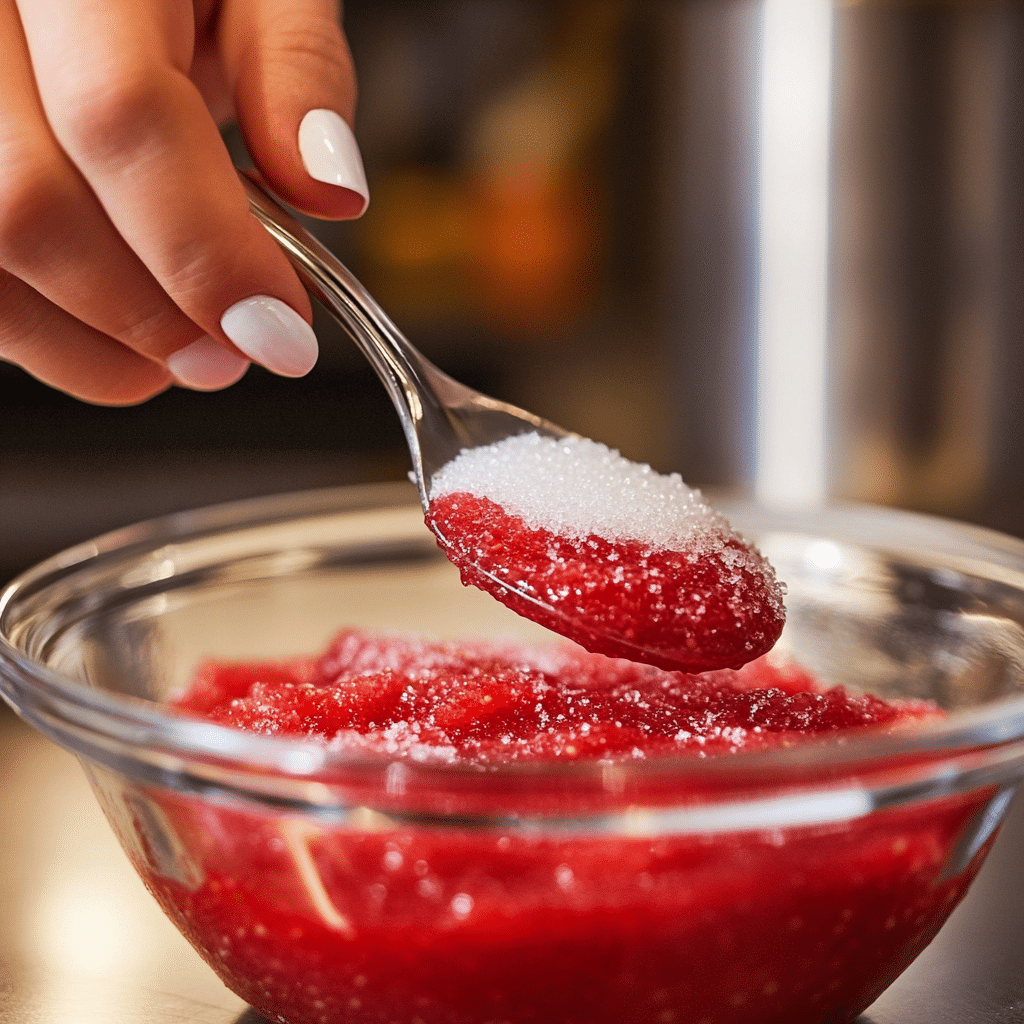
Nutritional Profile and Health Benefits
Nutritional Breakdown
It’s easy to think that a strawberry matcha latte is just another sweet drink, but it can actually be a smart choice—especially if you watch what goes into it. Depending on the milk and sweetener used, a medium-sized cup usually contains between 120 to 250 calories. Most of those calories come from milk and any added sugar, while matcha itself contributes very little.
Now, let’s talk about what’s inside. You get a decent dose of antioxidants, especially from matcha. It’s rich in catechins, a type of antioxidant linked to improved metabolism and heart health. Strawberries bring in vitamin C, fiber, and more antioxidants. And if you opt for oat or almond milk, you can keep it dairy-free and lower in saturated fats
By swapping refined sugar for honey or maple syrup, or even skipping the sweetener entirely, you can enjoy a version that’s both tasty and better for you. That’s one reason why so many people are switching to plant-based lattes and fruit-flavored teas like this one—it’s easy to customize based on your needs.
Health Advantages
Beyond its good looks and great flavor, the strawberry matcha latte offers real benefits. Matcha contains a small but steady caffeine boost—enough to keep you alert without the crash. It also contains L-theanine, an amino acid that promotes calm focus. Many people say it helps them feel energized but relaxed, which makes it ideal for work or study breaks.
Strawberries, on the other hand, are low in sugar and high in antioxidants. Together, they help reduce inflammation and may support skin health, digestion, and brain function. Not bad for a drink that also tastes like dessert!
So, if you’re looking for a fun way to hydrate, fuel your body, and satisfy your taste buds, the strawberry matcha latte might just be your new favorite.
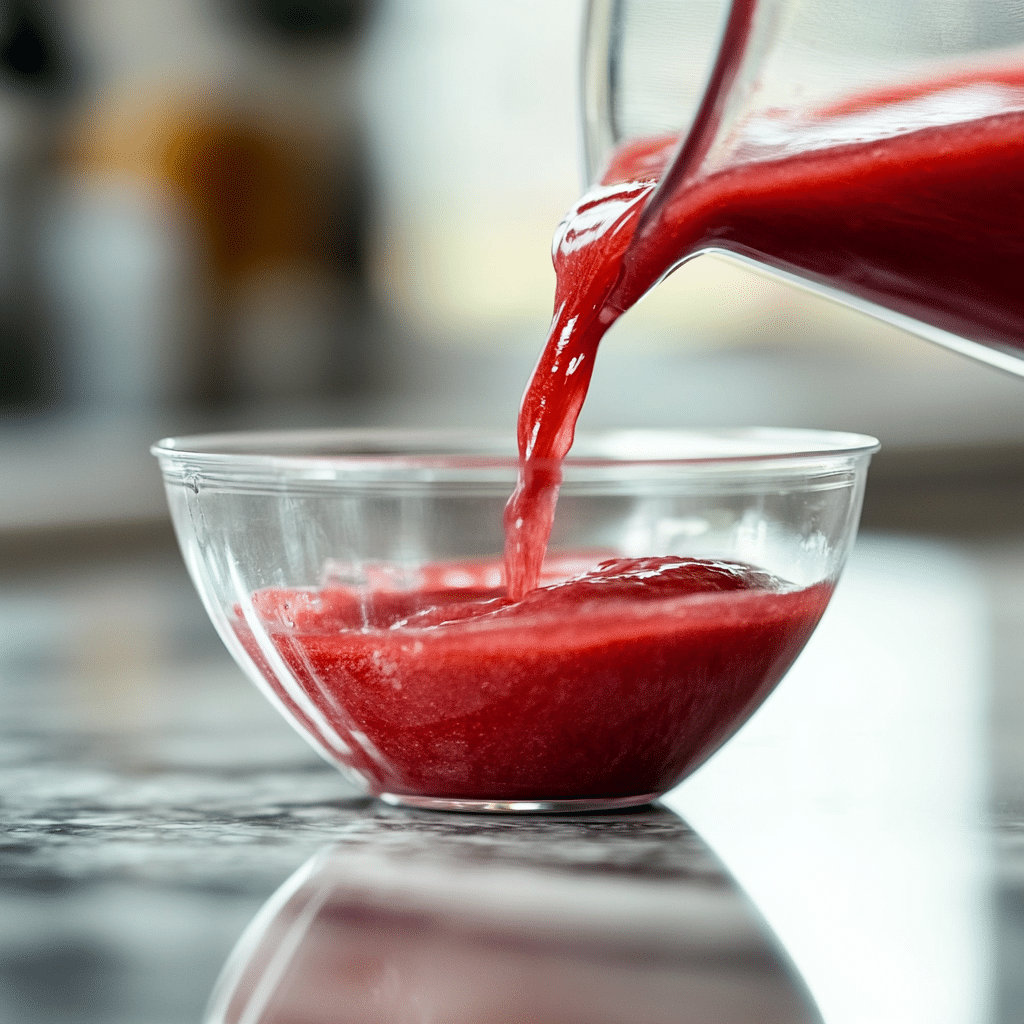
Crafting the Perfect Strawberry Matcha Latte at Home
Essential Ingredients and Tools
Making a café-style strawberry matcha latte at home is easier than you think. And the best part? You’re in full control of what goes in.
Start with high-quality matcha powder—ceremonial grade is best for drinks, but culinary grade works too. You’ll also need fresh or frozen strawberries, your choice of milk (oat, almond, soy, or regular), a natural sweetener, and ice if you like it chilled.
As for tools, a bamboo whisk (or electric frother) helps blend the matcha without clumps. A blender is great for pureeing the strawberries, and a tall glass will let you show off the beautiful layers.
Here’s a basic ingredient list:
- 1 tsp matcha powder
- 3–4 fresh strawberries (or ¼ cup frozen)
- 1 cup milk (dairy or plant-based)
- 1 tsp honey, maple syrup, or agave (optional)
- Ice cubes (optional)
Step-by-Step Preparation Guide
- Blend the strawberries
Start by blending your strawberries with a splash of water and sweetener until smooth. Pour this mixture into the bottom of your glass. - Add the milk
Slowly pour in your cold or warm milk over the strawberry layer. If you want defined layers, pour gently over the back of a spoon. - Whisk the matcha
In a small bowl, whisk the matcha powder with hot (not boiling) water until frothy and smooth. - Layer the matcha on top
Carefully pour the matcha over the milk. You’ll see a beautiful green layer float on top—classic strawberry matcha latte style. - Serve and enjoy
Add a few ice cubes if you want it cold, give it a gentle swirl if you prefer blended flavors, and sip away.
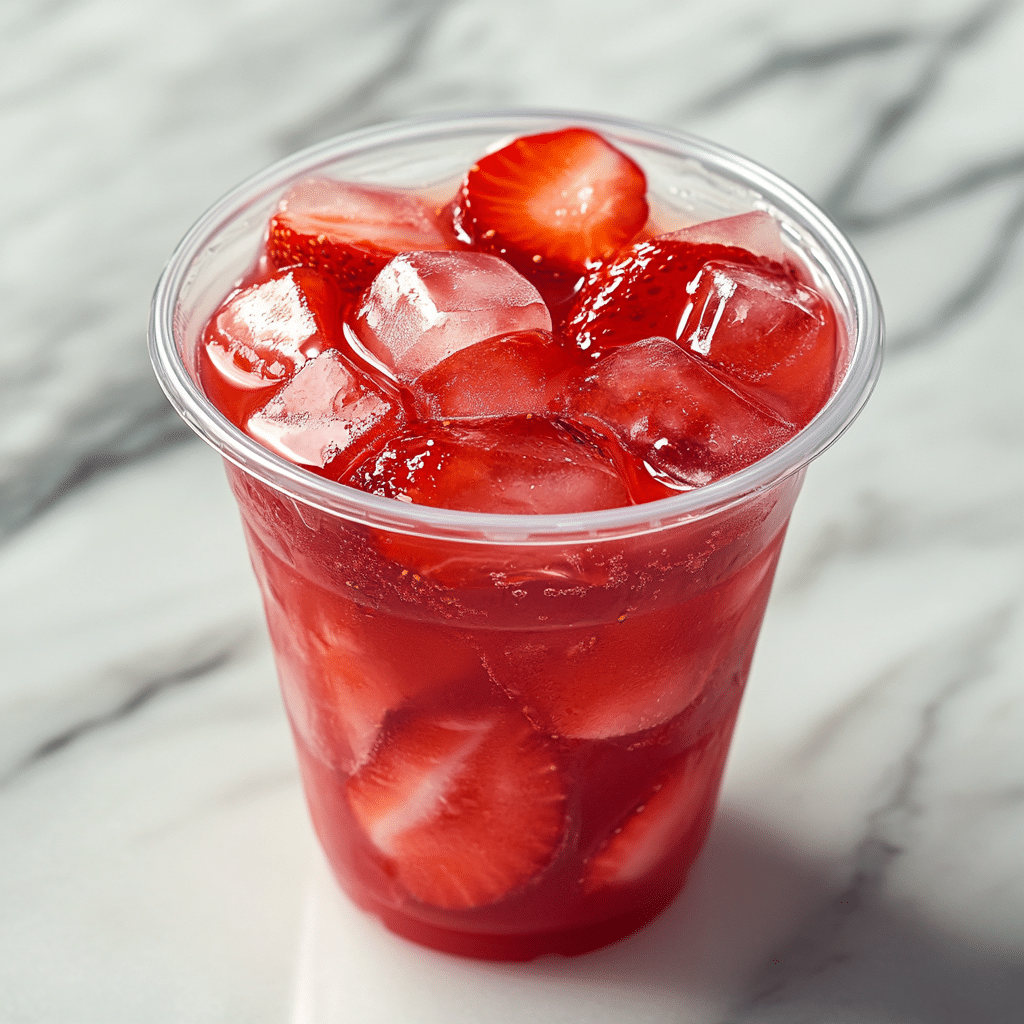
Chef Sofia loves to add a sprinkle of chia seeds or a pinch of cinnamon for a little twist. Want it creamier? Use coconut milk. Want it richer in color? Add freeze-dried strawberry powder to the purée.
Making this drink at home not only saves money—it also lets you get creative. And once you master it, you’ll be serving café-style matcha beverages without ever leaving your kitchen.
Part 4: Variations and Customizations (300–350 words)
Dairy-Free and Vegan Options
For those seeking plant-based alternatives, the strawberry matcha latte is highly adaptable. Substituting dairy milk with options like oat, almond, or soy milk not only caters to dietary preferences but also introduces unique flavor profiles. Oat milk offers a creamy texture, almond milk adds a nutty undertone, and soy milk provides a neutral base that lets the matcha and strawberry flavors shine.
Sweeteners can also be tailored to individual tastes. Natural options such as agave syrup, maple syrup, or coconut sugar can replace refined sugars, aligning with vegan diets and adding distinct flavors. For a lower-calorie alternative, stevia or monk fruit sweeteners are excellent choices.
These substitutions not only make the strawberry matcha latte suitable for various dietary needs but also allow for experimentation with flavors and textures, enhancing the overall drinking experience.
Creative Twists
Beyond traditional preparations, the strawberry matcha latte offers a canvas for creativity. Incorporating boba pearls introduces a chewy texture, transforming the drink into a delightful fusion of tea and dessert. Adding flavored syrups like vanilla or rose can elevate the flavor profile, while spices such as cinnamon or cardamom add warmth and complexity.
For a refreshing twist, consider blending the ingredients with ice to create a smoothie-like consistency. Alternatively, layering the drink with whipped cream or coconut cream can add richness and visual appeal.
These variations not only enhance the sensory experience but also allow individuals to tailor the strawberry matcha latte to their personal preferences, making each cup a unique creation.
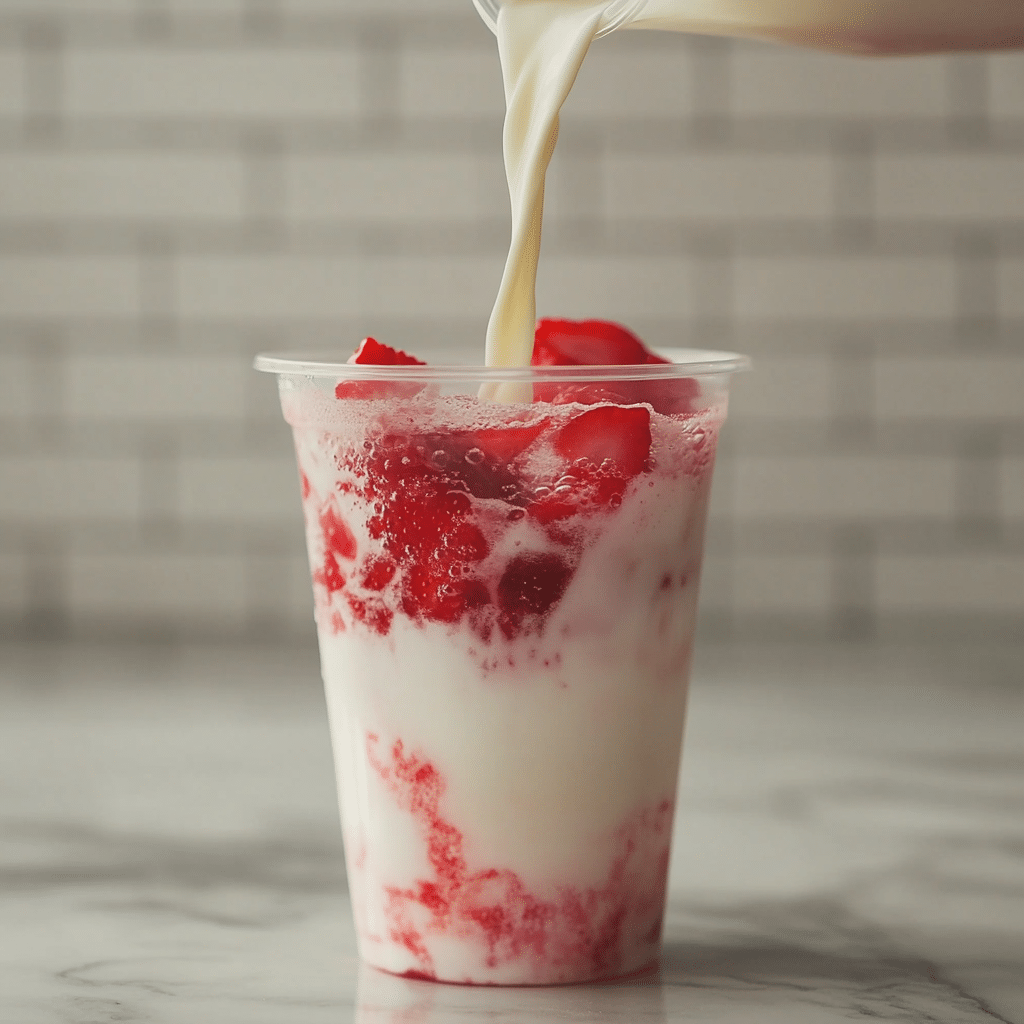
Strawberry Matcha Latte in Popular Culture
Café Menus and Commercial Availability
The strawberry matcha latte has transcended its origins to become a staple in cafés worldwide. Major coffee chains and local establishments alike have embraced this vibrant beverage, often featuring it as a seasonal or specialty item. Its visually appealing layers and harmonious blend of flavors make it a popular choice among patrons seeking both taste and aesthetic appeal.
In addition to traditional cafés, the drink has found its way into various culinary settings, including dessert shops and health-focused eateries. Its versatility and adaptability to different dietary preferences contribute to its widespread popularity.
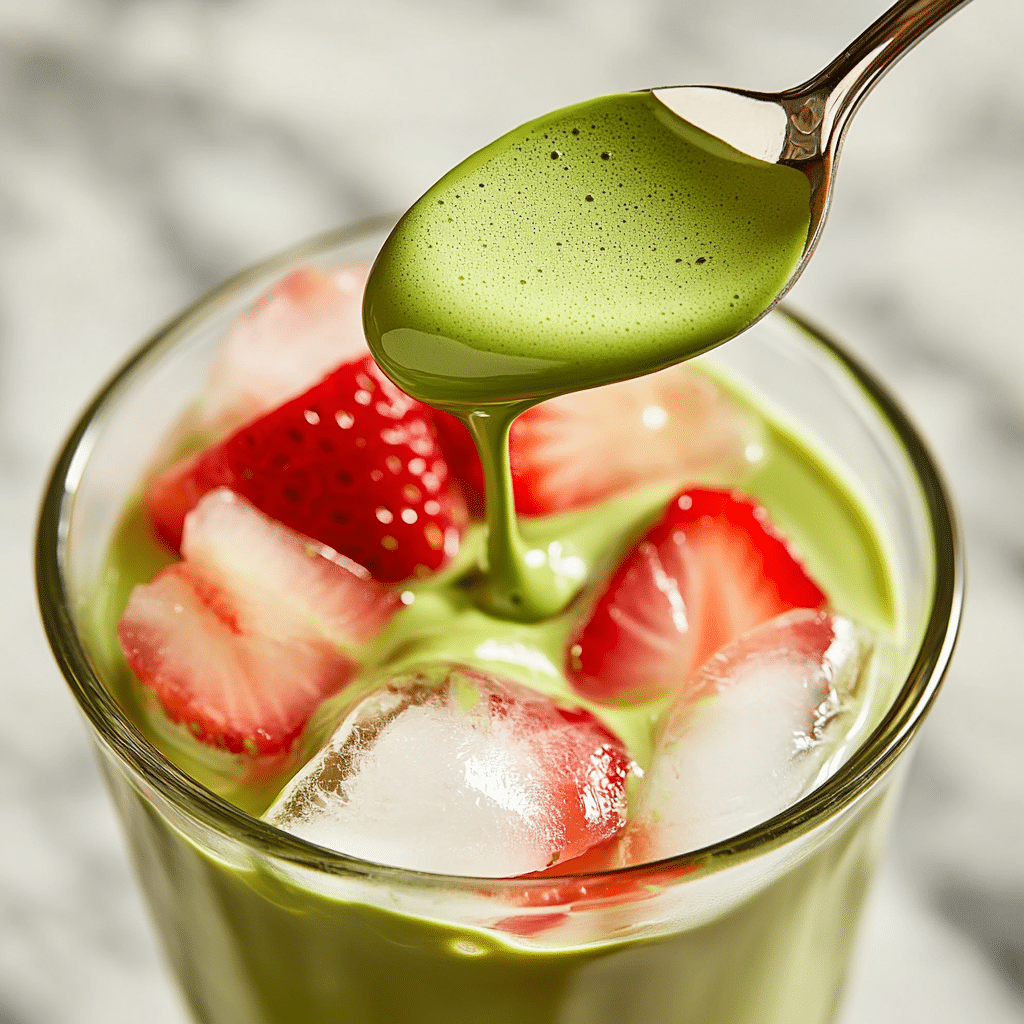
Social Media Influence
The rise of social media platforms has significantly contributed to the strawberry matcha latte‘s popularity. Its striking appearance, characterized by the contrast between the green matcha and red strawberry layers, makes it a photogenic subject for platforms like Instagram and TikTok. Users frequently share images and videos of their personalized versions, inspiring others to recreate the drink at home.
This online presence has not only increased awareness but also fostered a community of enthusiasts who exchange tips, recipes, and variations. The strawberry matcha latte has thus become more than just a beverage; it represents a cultural phenomenon that blends culinary art with digital expression.
What is the caffeine content in a strawberry matcha latte?
That’s a common question! A typical strawberry matcha latte contains around 30–70 mg of caffeine, depending on how much matcha is used. That’s about half the caffeine of a regular coffee. Because matcha releases caffeine more slowly, it tends to give you longer-lasting energy without the jitters. So, it’s a great pick if you want a gentle pick-me-up during the day.
Can I make a strawberry matcha latte without dairy?
Absolutely! This drink is very flexible. Many people now use oat, almond, soy, or even coconut milk to make their strawberry matcha latte completely dairy-free. These plant-based latte options also bring extra flavor and texture, with oat milk giving it a creamy body and almond milk adding a subtle nuttiness.
How can I reduce the sugar content?
Great question. If you want to enjoy this drink without the added sugar, you can skip sweeteners or use natural ones like stevia, agave, or a small amount of maple syrup. Fresh strawberries are already sweet, so in many cases, no extra sugar is needed at all. It all comes down to personal taste.
Are there any health concerns with drinking matcha regularly?
While matcha is full of antioxidants and health benefits, it’s best consumed in moderation. Stick to one or two servings per day. Too much matcha could lead to an upset stomach or interfere with iron absorption. But for most people, sipping on a strawberry matcha latte now and then is a delicious and balanced choice.
conclusione
The strawberry matcha latte brings together the best of both worlds—tradition and trend. It’s rooted in centuries-old matcha culture, yet it feels fresh, fun, and incredibly now. With its vibrant colors and layers of flavor, this drink offers more than refreshment. It’s a mindful moment, a creative outlet, and a health-conscious choice—all in one glass.
Thanks to its flexibility, anyone can enjoy it. Whether you prefer it vegan, sweet, creamy, or lightly tart, this matcha beverage adapts to your lifestyle and taste. No fancy equipment or experience required.
As we’ve seen, it’s not just a pretty face. It’s a meaningful blend of natural ingredients and modern flavor trends. So go ahead—try one today. You might just fall in love with the simple joy of a homemade strawberry matcha latte.
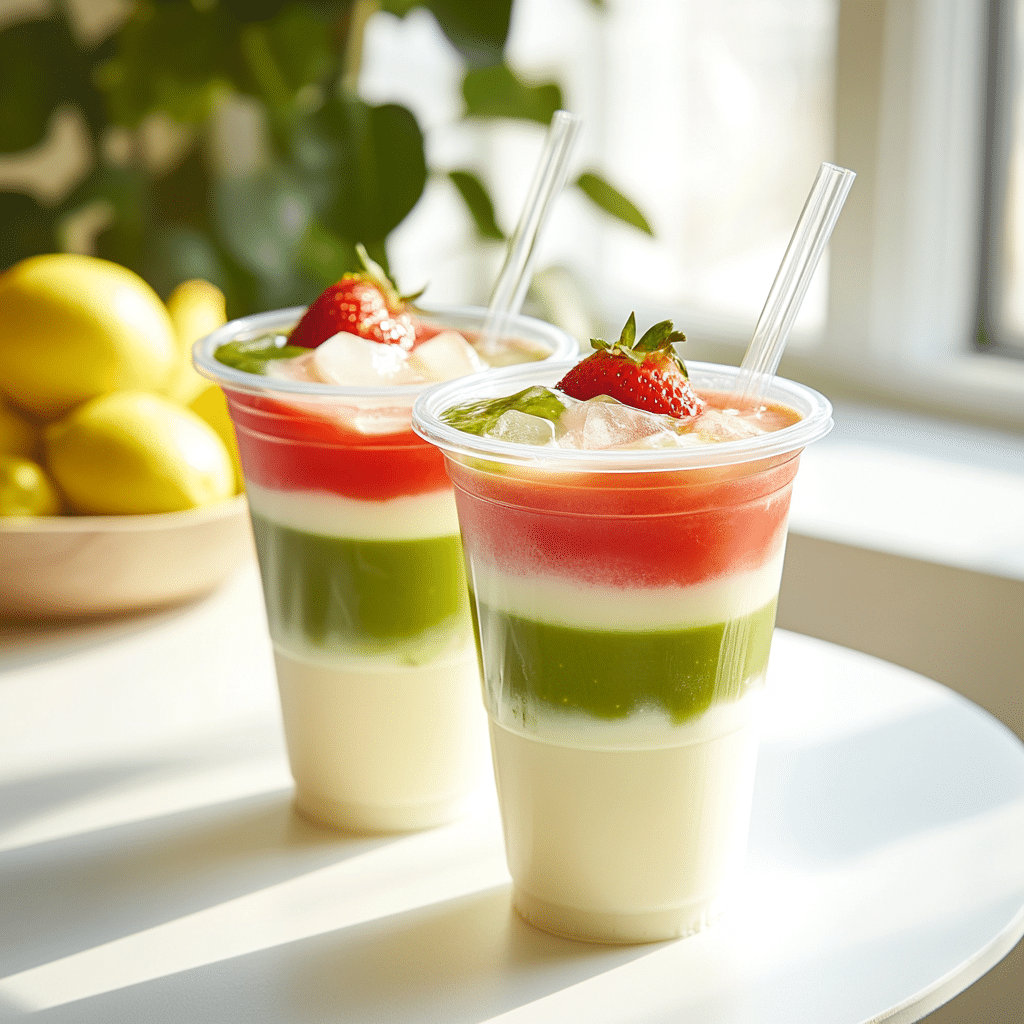
3 thoughts on “The Rise of Strawberry Matcha Latte A Fusion of Flavor and Wellness”